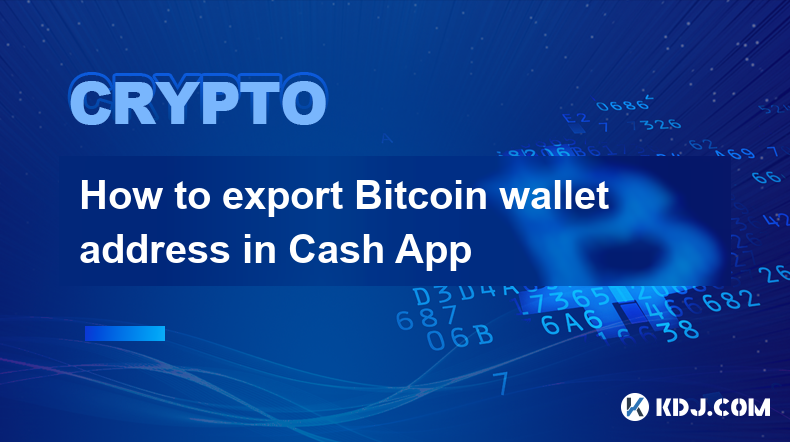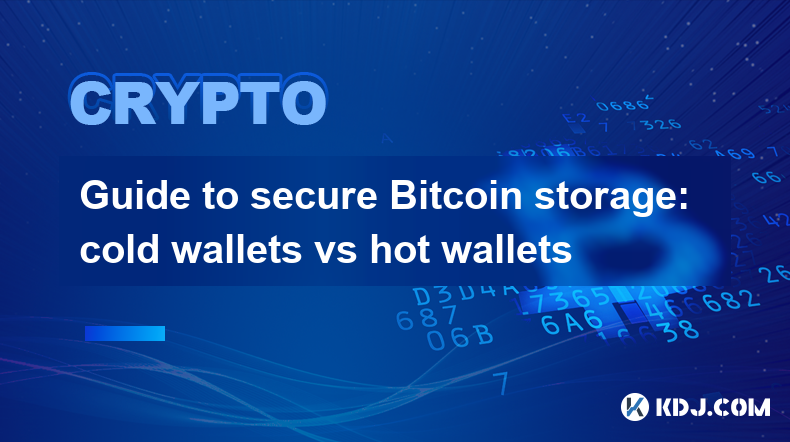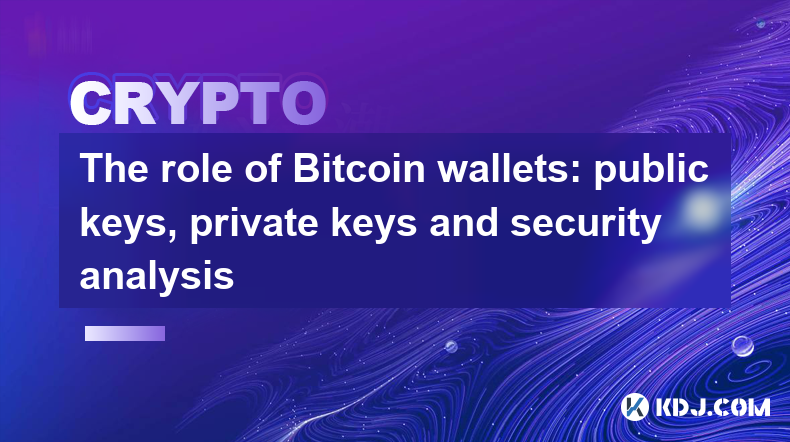-
 Bitcoin
Bitcoin $83,340.5735
4.40% -
 Ethereum
Ethereum $1,567.5957
2.44% -
 Tether USDt
Tether USDt $0.9995
0.03% -
 XRP
XRP $2.0241
2.36% -
 BNB
BNB $588.7605
2.03% -
 Solana
Solana $120.9413
6.83% -
 USDC
USDC $0.9999
0.00% -
 Dogecoin
Dogecoin $0.1606
4.14% -
 TRON
TRON $0.2433
2.83% -
 Cardano
Cardano $0.6273
3.33% -
 UNUS SED LEO
UNUS SED LEO $9.3882
-0.21% -
 Chainlink
Chainlink $12.6948
4.96% -
 Avalanche
Avalanche $19.1208
4.38% -
 Toncoin
Toncoin $2.9666
0.48% -
 Stellar
Stellar $0.2348
1.73% -
 Shiba Inu
Shiba Inu $0.0...01225
4.94% -
 Sui
Sui $2.2053
4.98% -
 Hedera
Hedera $0.1684
-0.43% -
 Bitcoin Cash
Bitcoin Cash $312.4889
7.16% -
 MANTRA
MANTRA $6.3867
-0.35% -
 Litecoin
Litecoin $76.2336
3.63% -
 Polkadot
Polkadot $3.5575
1.96% -
 Dai
Dai $1.0000
0.02% -
 Hyperliquid
Hyperliquid $15.7303
10.12% -
 Bitget Token
Bitget Token $4.3140
2.46% -
 Ethena USDe
Ethena USDe $0.9988
0.03% -
 Pi
Pi $0.6178
4.84% -
 Monero
Monero $205.6904
2.51% -
 Uniswap
Uniswap $5.2580
4.28% -
 OKB
OKB $53.4003
1.09%
How to export Bitcoin wallet address in Cash App
Cash App simplifies Bitcoin use but doesn't allow direct wallet address export; it manages Bitcoin internally, using a unique identifier for receiving transactions.
Apr 01, 2025 at 02:00 am

Cash App, a popular peer-to-peer payment app, allows users to buy, sell, and hold Bitcoin. However, directly exporting your Bitcoin wallet address in the traditional sense isn't possible within the Cash App interface. This is because Cash App manages your Bitcoin holdings internally, abstracting away the complexities of managing private keys. You don't interact directly with a Bitcoin wallet in the way you would with a desktop or hardware wallet.
Understanding Cash App's Bitcoin Handling
Cash App simplifies Bitcoin interaction for its users. Instead of providing you with a private key and a corresponding address to manage independently, it handles the underlying blockchain transactions for you. This means you don't technically "export" a wallet address in the same way you would with other Bitcoin wallets. Your Bitcoin is associated with your Cash App account, and transactions are linked to that account.
Accessing Your Bitcoin Address (Indirectly)
While you can't directly export a Bitcoin wallet address from Cash App in the traditional sense, you can access a unique identifier for receiving Bitcoin. This identifier functions similarly to a wallet address, allowing others to send Bitcoin to your Cash App account.
- Open the Cash App: Launch the Cash App on your mobile device.
- Navigate to the Bitcoin Tab: Locate and tap on the "Bitcoin" tab usually found at the bottom of the app's interface.
- Initiate a Receive Transaction: Look for an option to receive Bitcoin. This is often represented by a QR code or a button labeled "Receive."
- Display Your Receiving Details: Tapping "Receive" will display a unique identifier, often a QR code and a series of alphanumeric characters. This is how you receive Bitcoin payments into your Cash App account. This is not a traditional wallet address in the sense that you don't control the private key.
Sharing Your Cash App Bitcoin Receiving Details
This unique identifier associated with your Cash App account acts as your Bitcoin receiving address. You can share this identifier (either the QR code or the alphanumeric string) with anyone who wants to send you Bitcoin. They can then scan the QR code or manually enter the identifier into their Bitcoin wallet to complete the transaction. Remember, always verify the recipient before sending or receiving any cryptocurrency.
Security Considerations with Cash App Bitcoin
Because Cash App manages your Bitcoin, your security relies heavily on the security of your Cash App account. This means strong password practices, enabling two-factor authentication (2FA), and being vigilant against phishing scams are crucial. Losing access to your Cash App account effectively means losing access to your Bitcoin.
Why Cash App Doesn't Offer Direct Wallet Address Export
Cash App's approach prioritizes user-friendliness and security. Managing private keys directly can be complex and risky for less technically-savvy users. By handling the complexities internally, Cash App aims to reduce the risk of users losing their Bitcoin due to accidental key loss or security breaches.
Alternatives for More Control
If you require more control over your Bitcoin private keys and want to manage your own wallet address, consider using a third-party Bitcoin wallet like Electrum, Exodus, or a hardware wallet like Ledger or Trezor. These wallets give you direct access to your private keys and provide more control over your Bitcoin holdings. However, this comes with the responsibility of securely managing your private keys.
Understanding the Limitations
It's vital to understand that the receiving identifier in Cash App isn't a traditional wallet address in the context of self-custody. You don't have direct control over the private key, and your Bitcoin is held within Cash App's system. This is a trade-off for the convenience and simplified user experience that Cash App provides.
Risks of Using Cash App for Bitcoin
While convenient, using Cash App for Bitcoin also carries some inherent risks. These include the risk of Cash App experiencing a security breach, regulatory changes impacting Cash App's Bitcoin services, and the potential for account lockouts or disputes. Always be aware of these risks before using Cash App for managing significant amounts of Bitcoin.
Cash App's Role in Bitcoin Transactions
Cash App acts as an intermediary in Bitcoin transactions. It handles the complexities of the blockchain, allowing users to interact with Bitcoin without needing to understand the technical details. This simplification comes at the cost of reduced control compared to managing your own Bitcoin wallet.
Comparing Cash App to Traditional Bitcoin Wallets
Traditional Bitcoin wallets give you complete control over your private keys, allowing you to manage your Bitcoin independently. Cash App, on the other hand, manages your Bitcoin on your behalf, offering a simpler but less controlling experience. The choice between these options depends on your technical expertise and comfort level with managing private keys.
Frequently Asked Questions
Q: Can I send Bitcoin from my Cash App to another wallet?
A: Yes, you can send Bitcoin from your Cash App to another Bitcoin wallet. You'll need the receiving address of the external wallet to complete the transaction.
Q: What happens if I lose access to my Cash App account?
A: Losing access to your Cash App account could result in the loss of your Bitcoin holdings. Cash App's customer support may be able to assist, but it's crucial to secure your account with strong passwords and 2FA.
Q: Is Cash App a secure way to hold Bitcoin?
A: Cash App employs security measures, but like any online service, it's not immune to security risks. The security of your Bitcoin depends on the security of your Cash App account. Diversifying your holdings across multiple platforms and utilizing strong security practices is recommended.
Q: Can I withdraw my Bitcoin from Cash App to a bank account?
A: No, you cannot directly withdraw your Bitcoin from Cash App to a bank account. You can only sell your Bitcoin within the Cash App and then transfer the fiat currency to your linked bank account.
Q: What is the difference between a Bitcoin wallet address and the Cash App receiving identifier?
A: A Bitcoin wallet address is linked to a private key that you control. The Cash App receiving identifier is a unique identifier within the Cash App system; you don't control the underlying private key.
Disclaimer:info@kdj.com
The information provided is not trading advice. kdj.com does not assume any responsibility for any investments made based on the information provided in this article. Cryptocurrencies are highly volatile and it is highly recommended that you invest with caution after thorough research!
If you believe that the content used on this website infringes your copyright, please contact us immediately (info@kdj.com) and we will delete it promptly.
- The Lomond School in Scotland will accept Bitcoin (BTC) tuition payments
- 2025-04-12 07:10:13
- Investor Interest in Ripple Labs-Linked XRP Continues to Rise Following the Launch of the Teucrium 2x Long Daily XRP ETF
- 2025-04-12 07:10:13
- US Senate Draft Legislation Threatens to Hit Data Centers Serving Blockchain Networks and Artificial Intelligence Models with Fees
- 2025-04-12 07:05:13
- New US Senate Draft Legislation Threatens to Penalize Data Centers Serving Bitcoin (BTC) Miners and AI Models
- 2025-04-12 07:05:13
- Ethena Labs Partners with Chainlink, Harris & Trotter, Chaos Labs and LlamaRisk to Launch Proof of Reserves for Its Synthetic Dollar Stablecoin
- 2025-04-12 07:00:13
- BetMGM Bonus Code CUSE150 Extended Through April, Giving New Users a Chance to Secure a $150 Bonus
- 2025-04-12 07:00:13
Related knowledge

What is Bitcoin halving? Analysis of the impact on prices
Apr 09,2025 at 01:14pm
Bitcoin halving is a pivotal event in the cryptocurrency world that occurs approximately every four years, or every 210,000 blocks. The event is designed to reduce the rate at which new bitcoins are generated, thereby controlling inflation and increasing scarcity over time. During a halving, the reward that miners receive for successfully adding a block...

What to do if Bitcoin is stolen? Security protection and recovery possibilities
Apr 09,2025 at 03:42pm
If your Bitcoin is stolen, it can be a distressing experience, but there are steps you can take to protect your remaining assets and attempt to recover your lost funds. This article will guide you through the process of securing your Bitcoin and exploring recovery possibilities. Immediate Actions After Bitcoin TheftThe moment you realize your Bitcoin ha...

How to avoid Bitcoin investment scams? Common scams revealed
Apr 10,2025 at 05:14pm
Introduction to Bitcoin Investment ScamsBitcoin and other cryptocurrencies have become increasingly popular investment options, attracting both seasoned investors and newcomers alike. However, with the rise in popularity, there has also been a surge in Bitcoin investment scams. These scams can range from Ponzi schemes to fake exchanges and fraudulent in...

Guide to secure Bitcoin storage: cold wallets vs hot wallets
Apr 11,2025 at 08:42am
Guide to Secure Bitcoin Storage: Cold Wallets vs Hot Wallets When it comes to storing Bitcoin, security is paramount. The choice between cold wallets and hot wallets can significantly impact the safety of your digital assets. This guide delves into the differences between these two types of wallets, their respective advantages and disadvantages, and how...

What is Bitcoin fork? Differences between BTC, BCH, and BSV
Apr 10,2025 at 02:21am
A Bitcoin fork refers to a change in the underlying protocol of the Bitcoin blockchain, which results in a divergence into two separate versions of the blockchain. This can happen as a result of a disagreement within the community about the direction of the cryptocurrency, or to introduce new features or improvements. There are two main types of forks: ...

The role of Bitcoin wallets: public keys, private keys and security analysis
Apr 09,2025 at 03:00am
Bitcoin wallets play a crucial role in the world of cryptocurrency, serving as the gateway to securely store, send, and receive Bitcoin. Understanding the intricacies of Bitcoin wallets, particularly the concepts of public keys, private keys, and security analysis, is essential for anyone looking to navigate the cryptocurrency landscape safely and effec...

What is Bitcoin halving? Analysis of the impact on prices
Apr 09,2025 at 01:14pm
Bitcoin halving is a pivotal event in the cryptocurrency world that occurs approximately every four years, or every 210,000 blocks. The event is designed to reduce the rate at which new bitcoins are generated, thereby controlling inflation and increasing scarcity over time. During a halving, the reward that miners receive for successfully adding a block...

What to do if Bitcoin is stolen? Security protection and recovery possibilities
Apr 09,2025 at 03:42pm
If your Bitcoin is stolen, it can be a distressing experience, but there are steps you can take to protect your remaining assets and attempt to recover your lost funds. This article will guide you through the process of securing your Bitcoin and exploring recovery possibilities. Immediate Actions After Bitcoin TheftThe moment you realize your Bitcoin ha...

How to avoid Bitcoin investment scams? Common scams revealed
Apr 10,2025 at 05:14pm
Introduction to Bitcoin Investment ScamsBitcoin and other cryptocurrencies have become increasingly popular investment options, attracting both seasoned investors and newcomers alike. However, with the rise in popularity, there has also been a surge in Bitcoin investment scams. These scams can range from Ponzi schemes to fake exchanges and fraudulent in...

Guide to secure Bitcoin storage: cold wallets vs hot wallets
Apr 11,2025 at 08:42am
Guide to Secure Bitcoin Storage: Cold Wallets vs Hot Wallets When it comes to storing Bitcoin, security is paramount. The choice between cold wallets and hot wallets can significantly impact the safety of your digital assets. This guide delves into the differences between these two types of wallets, their respective advantages and disadvantages, and how...

What is Bitcoin fork? Differences between BTC, BCH, and BSV
Apr 10,2025 at 02:21am
A Bitcoin fork refers to a change in the underlying protocol of the Bitcoin blockchain, which results in a divergence into two separate versions of the blockchain. This can happen as a result of a disagreement within the community about the direction of the cryptocurrency, or to introduce new features or improvements. There are two main types of forks: ...

The role of Bitcoin wallets: public keys, private keys and security analysis
Apr 09,2025 at 03:00am
Bitcoin wallets play a crucial role in the world of cryptocurrency, serving as the gateway to securely store, send, and receive Bitcoin. Understanding the intricacies of Bitcoin wallets, particularly the concepts of public keys, private keys, and security analysis, is essential for anyone looking to navigate the cryptocurrency landscape safely and effec...
See all articles























































































